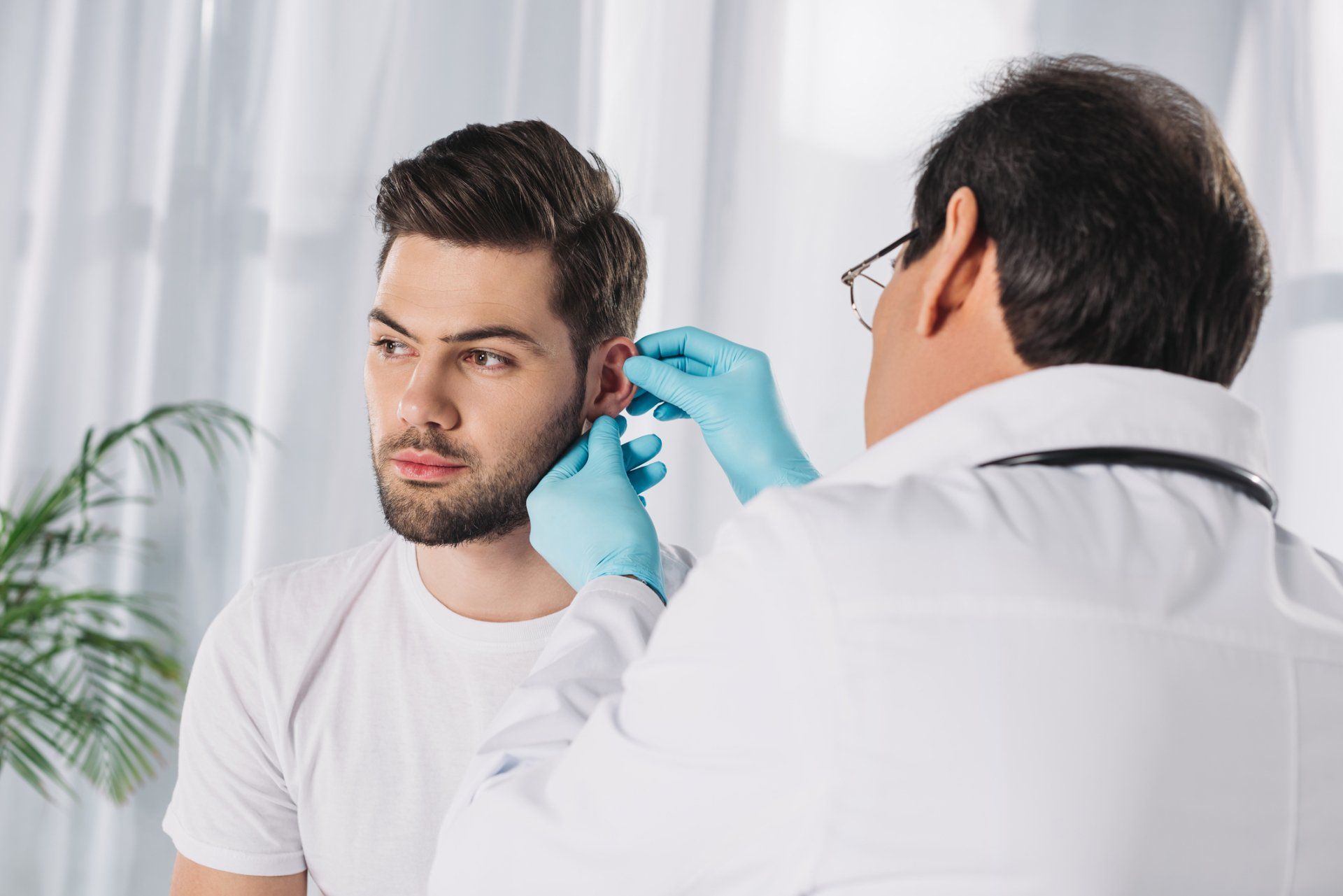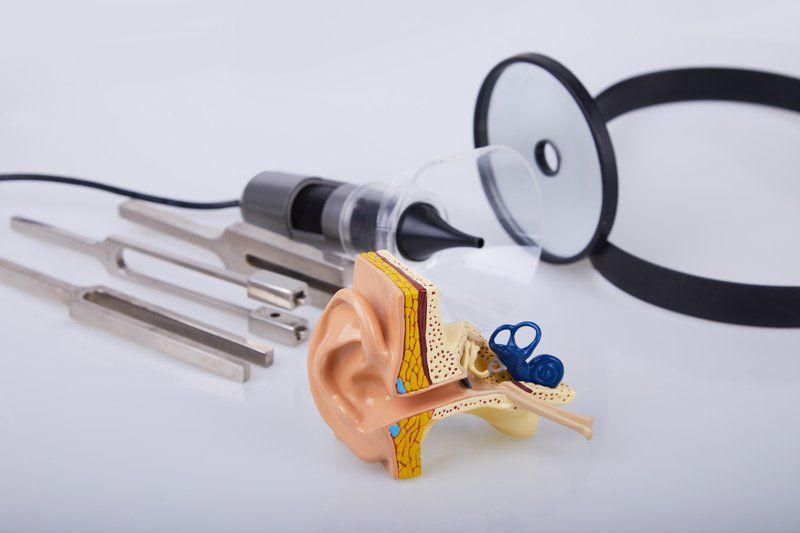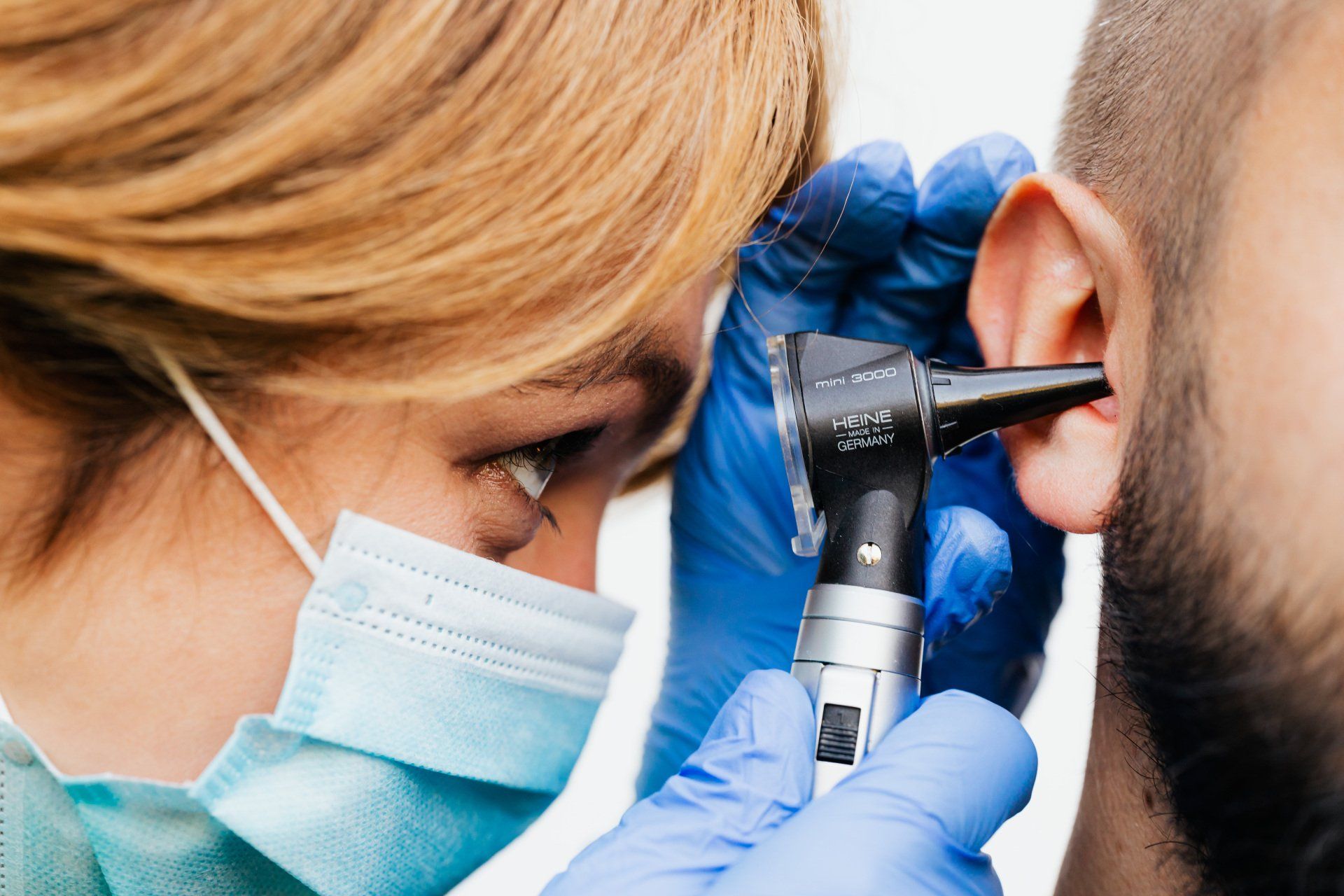Hearing Care Services
Our expert staff of audiologists provide services to those from newborn to over a hundred years old. These include basic behavioral tests and sophisticated computerized otoneurological evaluations. When appropriate, the latest digital hearing instruments may be utilized to help compensate for a hearing impairment.

Diagnostic Hearing Tests
Repeated exposure to loud noises, like the 140-decibel blast of a rifle or the 130-decibel roar of a jet taking off, can cause irreparably damage to the hair cells of the inner ear – those cells that enable one to hear. Hearing loss caused by loud noises can be prevented through the use of custom-made earplugs.

Earwax Removal and Management
Cerumen is another word for earwax, which is the oily substance your body naturally produces to protect your ear canal. Sometimes too much cerumen is produced, causing a build-up of wax which can cause temporary hearing loss. Cerumen should only be removed by a qualified hearing professional.

Hearing Aid Dispensing
Audiologists are certified and licensed to not only dispense and fit hearing aids, but are also trained to diagnose and treat hearing and balance disorders. They have had several years of advanced education and have obtained a Master’s Degree or Doctoral Degree in Audiology (Au.D./Ph.D).

Tinnitus Treatment
Tinnitus is a medical condition characterized by persistent ringing in one or both ears which can only be heard by the affected individual. It has also been described as whistling, hissing, buzzing, or pulsing in the ear.

Hearing Loss in Children
Hearing loss at any age is an emotional issue and robs you of a sense that adds so much to the richness of life. Fortunately, many causes of hearing loss are treatable, and it is often possible to return the sounds of childhood to a young life.

Balance & Dizziness Testing
Dizziness or loss of balance is the second most common complaint heard in doctors’ offices. National Institute of Health statistics indicate dizziness will occur in 70 percent of the nation’s population at some point in their lives. Acute or chronic problems with equilibrium may indicate serious health risks or limit a person’s everyday living.



